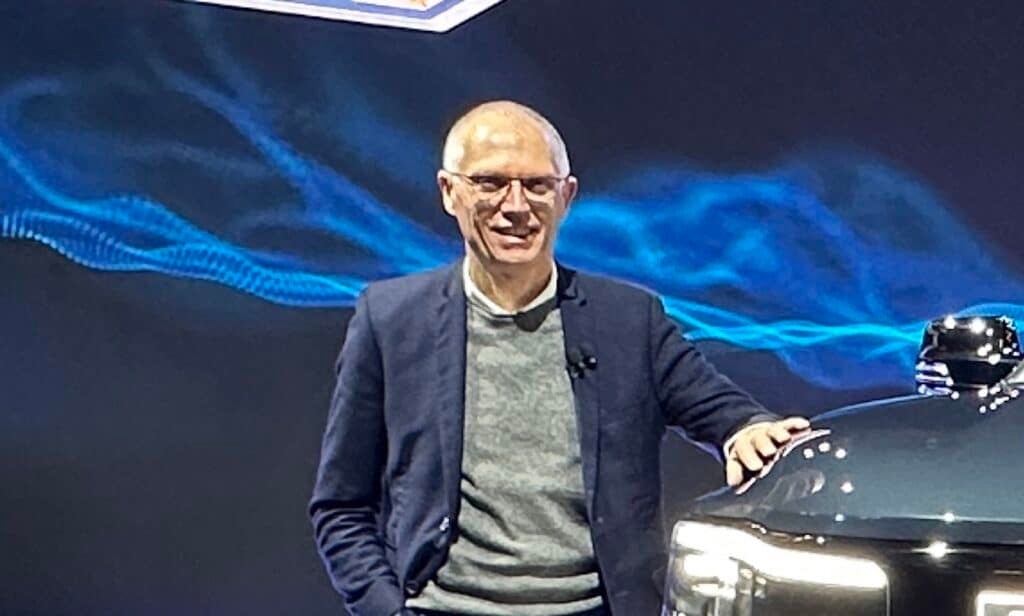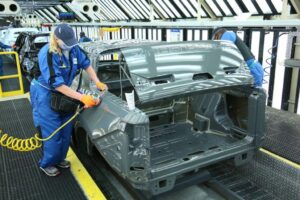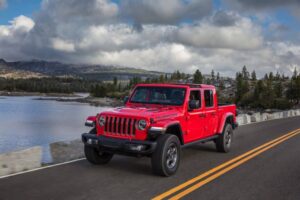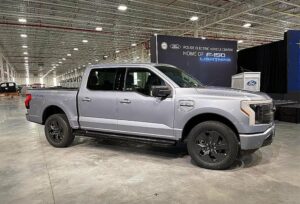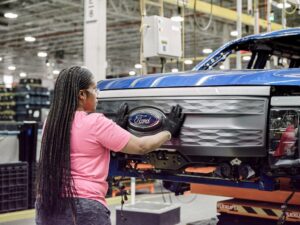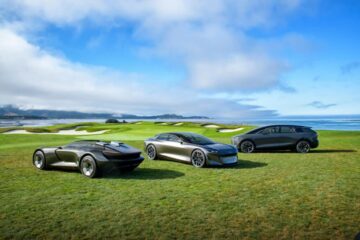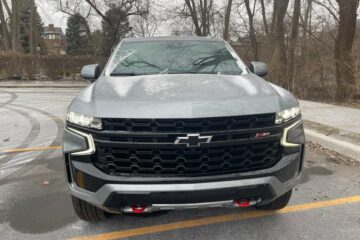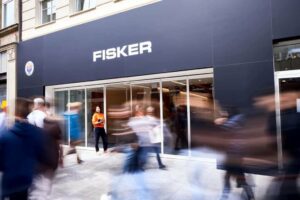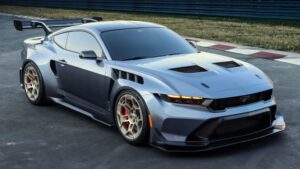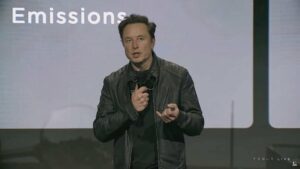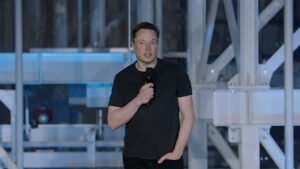Seven major automakers are forming a rare alliance aimed at addressing “charger anxiety,” in a bid to spur widespread EV adoption.
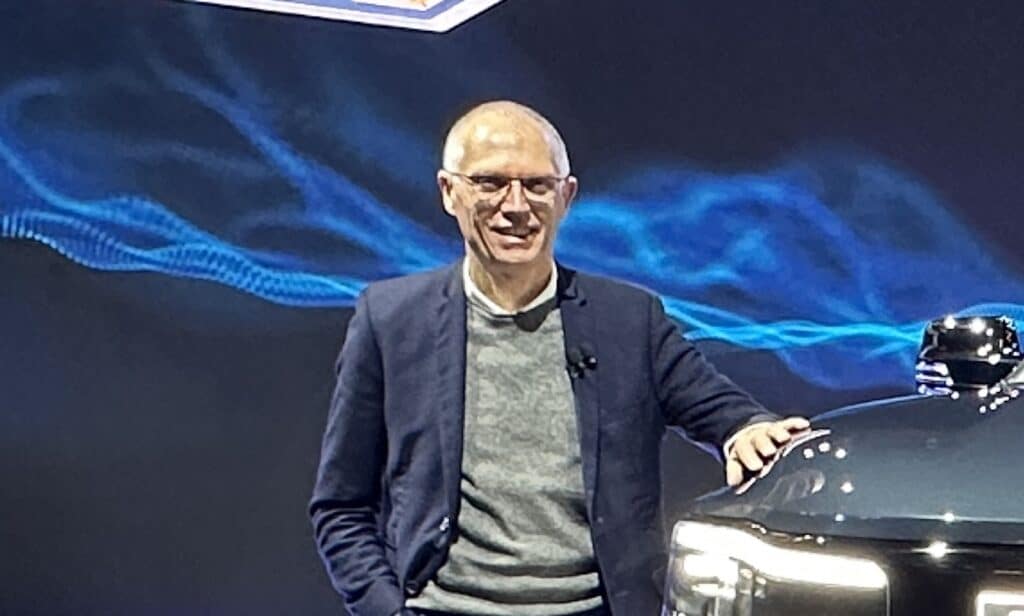
Their new joint venture, which will team BMW Group, General Motors, Honda, Hyundai, Kia, Mercedes-Benz Group and Stellantis NV, plans to install 30,000 quick chargers across the U.S. and Canada. The first is expected to go into operation by summer of 2024.
“We intend to exceed customer expectations by creating more opportunities for a seamless charging experience given the significant growth expected in the market,” said Stellantis CEO Carlos Tavares in a joint statement, with GM CEO Mary Barra adding, “The better experience people have, the faster EV adoption will grow.”
From range anxiety to charger anxiety
While “range anxiety” was long seen as an obstacle to EV adoption, the newest battery-electric vehicles are generally providing range in line with what comparable gas-powered models offer, with some topping 400, and even 500 miles.
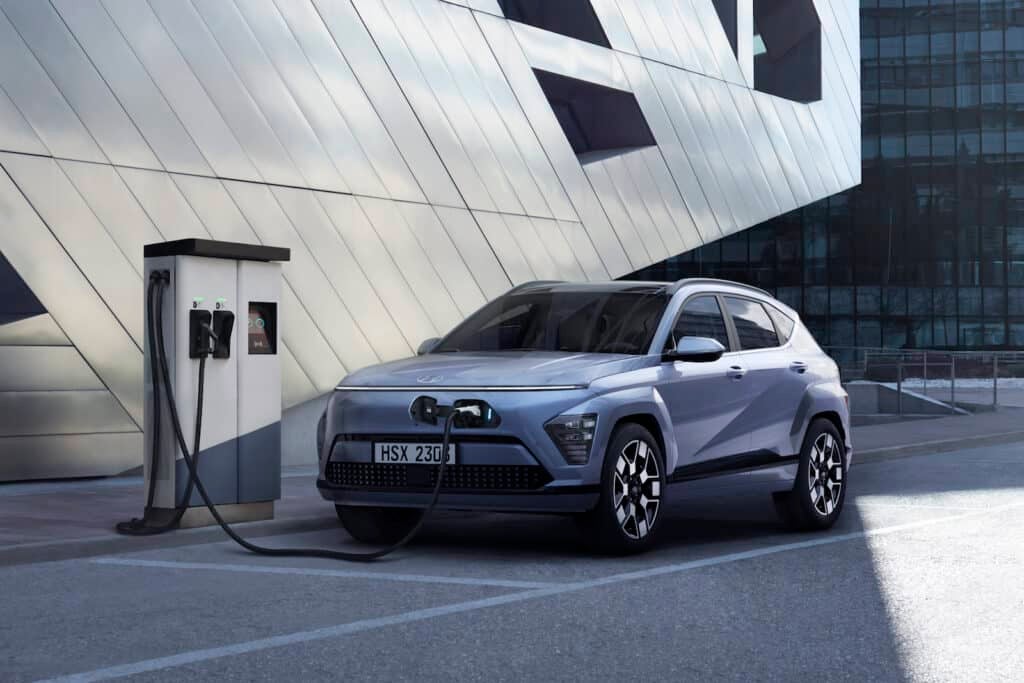
What has become known as “charger anxiety” is seen as a more severe concern, especially in rural parts of the country often described as “charger deserts.” But, even in rural areas where EV owners have more places to plug in, charger reliability remains an issue. A study released last year by the University of California — Berkeley found roughly a quarter of the public chargers in the San Francisco Bay Area were out of order at any given moment.
The consortium — which won’t release a formal name until later this year, according to a spokesman — aims to address both issues.
A target of “at least” 30,000 new chargers
Right now, the U.S. Department of Energy reports, there are 32,000 public quick chargers in the U.S., with 2.3 million EVs in operation. But by 2030, that could grow to as many as 42 million battery-electric vehicles by 2030, at least if President Joe Biden’s goal of reaching 50% of new vehicle sales, according to the National Renewable Energy Laboratory. It estimates the network will need to grow to 182,000 fast chargers by the end of the decade.
All told, the new joint venture would provide more than 15% of that goal, with a target of having “at least” 30,000 DC fast chargers in operation by 2030. And unlike most of today’s EV stations, which typically have as few as one or two of those chargers at any location, the goal is to have anywhere from 10 to 20 “plugs” available at each of the new facilities, Chris Martin, a Honda spokesman representing the seven manufacturers, told TheDetroitBureau.com.
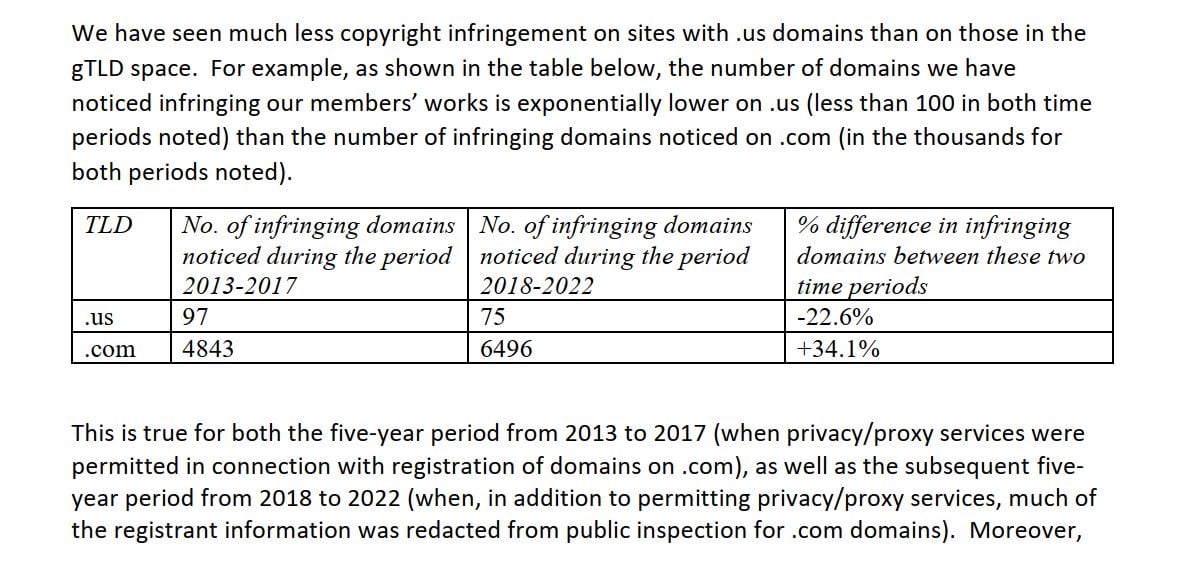
The new joint venture aims to be open to all EVs. Its stations will include both the Combined Charging System (CCS) plug today used by most manufacturers, as well as Tesla’s North American Charging Standard (NACS) connector. Several of the partners, including Ford, GM and Mercedes, have formed alliances with Tesla and plan to switch to the NACS standard in order to gain access to Tesla’s Superchargers. They currently make up the largest charging network in North America.
The precise number of individual stations the venture will operate has not been determined. A number of other details have yet to be locked in. That includes the supplier, or suppliers, who will manufacturer the new fast charger.
Reliability a critical issue
One of the critical goals will be to bring charger “reliability” up to the same, near-perfect level as is the norm for today’s gas pumps. Anecdotal stories common on social media back up the UC-Berkeley study finding that current chargers have a tendency to break down frequently.
The study was “a wake up call for the industry, when everybody looked at the scores and they were going backwards,” Brendan Jones, the CEO of Blink, a major EV charger manufacturer, told TheDetroitBureau.com earlier this year.
The yet-to-be-named joint venture plans to get into operation quickly. The first of its stations is scheduled to open in the U.S. by summer 2024, according to a group statement. Canadian facilities will be added at “a later stage.”
- SEO Powered Content & PR Distribution. Get Amplified Today.
- PlatoData.Network Vertical Generative Ai. Empower Yourself. Access Here.
- PlatoAiStream. Web3 Intelligence. Knowledge Amplified. Access Here.
- PlatoESG. Automotive / EVs, Carbon, CleanTech, Energy, Environment, Solar, Waste Management. Access Here.
- BlockOffsets. Modernizing Environmental Offset Ownership. Access Here.
- Source: https://www.thedetroitbureau.com/2023/07/new-ev-consortium-plans-to-install-30000-fast-chargers-across-u-s-canada/
- :has
- :is
- :not
- :where
- $UP
- 000
- 10
- 15%
- 20
- 2023
- 2024
- 2030
- 30
- 32
- 40
- 500
- a
- access
- According
- across
- added
- adding
- address
- addressing
- Adoption
- aimed
- aims
- All
- Alliance
- also
- america
- American
- an
- and
- Anxiety
- any
- anywhere
- ARE
- AREA
- areas
- AS
- At
- automakers
- available
- back
- Bay
- BE
- become
- been
- Berkeley
- Better
- bid
- Blink
- BMW
- both
- Break
- bring
- build
- Building
- Bureau
- but
- by
- california
- call
- Canada
- Canadian
- ceo
- charging
- Chris
- COM
- combined
- Common
- comparable
- Concern
- consortium
- could
- country
- Creating
- critical
- Current
- Currently
- customer
- customer expectations
- dc
- decade
- Department
- Department of Energy
- described
- details
- determined
- down
- each
- Earlier
- Electric
- end
- energy
- especially
- estimates
- EV
- Even
- exceed
- expectations
- expected
- experience
- facilities
- FAST
- faster
- few
- finding
- First
- For
- Ford
- formal
- formed
- found
- Francisco
- frequently
- from
- Gain
- GAS
- General
- General Motors
- generally
- get
- given
- GM
- Go
- goal
- Goals
- going
- Group
- Grow
- Growth
- Have
- having
- HTTPS
- Hyundai
- if
- in
- include
- includes
- Including
- individual
- industry
- install
- intend
- into
- issue
- issues
- IT
- ITS
- joe
- joint
- joint venture
- jones
- jpg
- Kia
- known
- laboratory
- largest
- Last
- Last Year
- later
- least
- Level
- Line
- location
- locked
- Long
- looked
- major
- make
- Manufacturer
- Manufacturers
- many
- Market
- Martin
- mary barra
- max-width
- Media
- million
- models
- moment
- more
- most
- Motors
- name
- National
- Need
- network
- New
- Newest
- North
- north america
- now
- number
- NV
- obstacle
- of
- offer
- often
- on
- ONE
- open
- operate
- operation
- opportunities
- or
- order
- Other
- out
- owners
- part
- partners
- parts
- People
- Places
- plan
- planning
- plans
- plato
- Plato Data Intelligence
- PlatoData
- plug
- precise
- president
- project
- provide
- providing
- public
- pumps
- Quarter
- Quick
- quickly
- range
- RARE
- reaching
- release
- released
- reliability
- remains
- Renewable
- renewable energy
- Reports
- representing
- roughly
- Rural
- Rural Areas
- s
- Said
- sales
- same
- San
- San Francisco
- san francisco bay area
- scheduled
- scores
- seamless
- seen
- seven
- several
- severe
- significant
- Social
- social media
- some
- Stage
- standard
- Statement
- Stations
- Stories
- Study
- summer
- suppliers
- Switch
- system
- Target
- team
- Tesla
- than
- that
- The
- There.
- they
- this
- this year
- those
- to
- today
- today’s
- two
- typically
- u.s.
- university
- University of California
- unlike
- until
- used
- vehicle
- Vehicles
- venture
- Wake
- Wake Up
- was
- WELL
- were
- What
- when
- which
- WHO
- widespread
- will
- with
- would
- year
- yet
- zephyrnet

